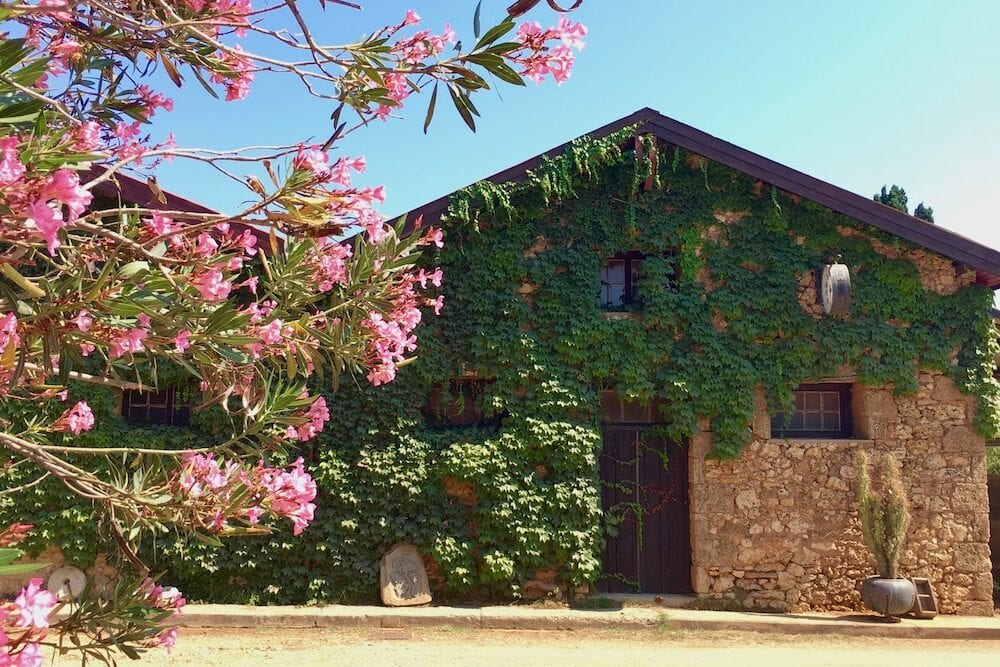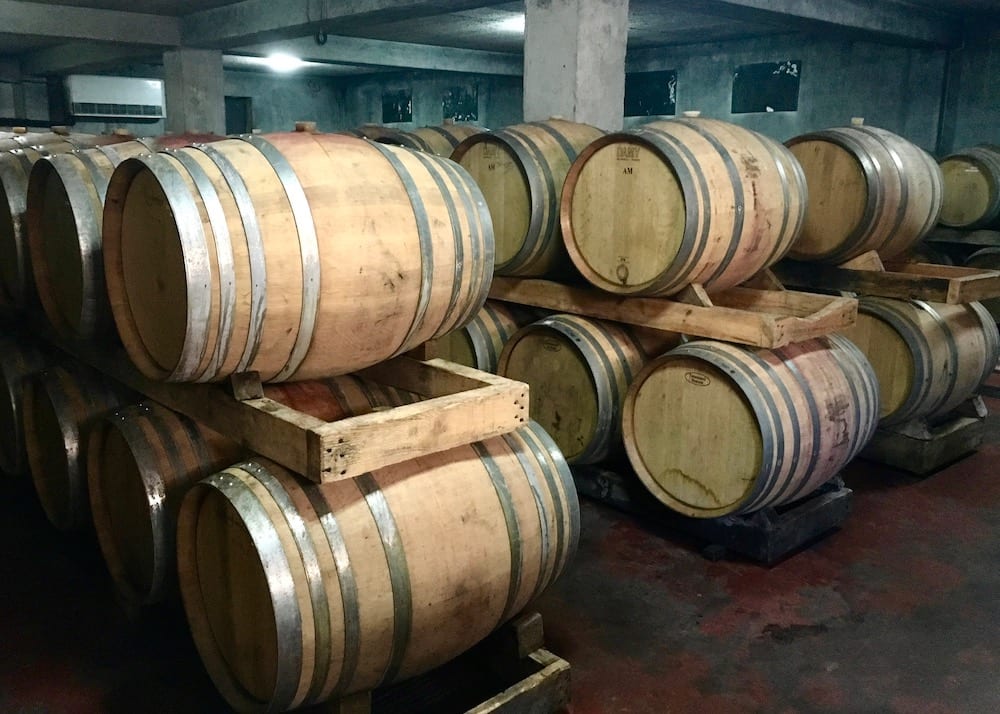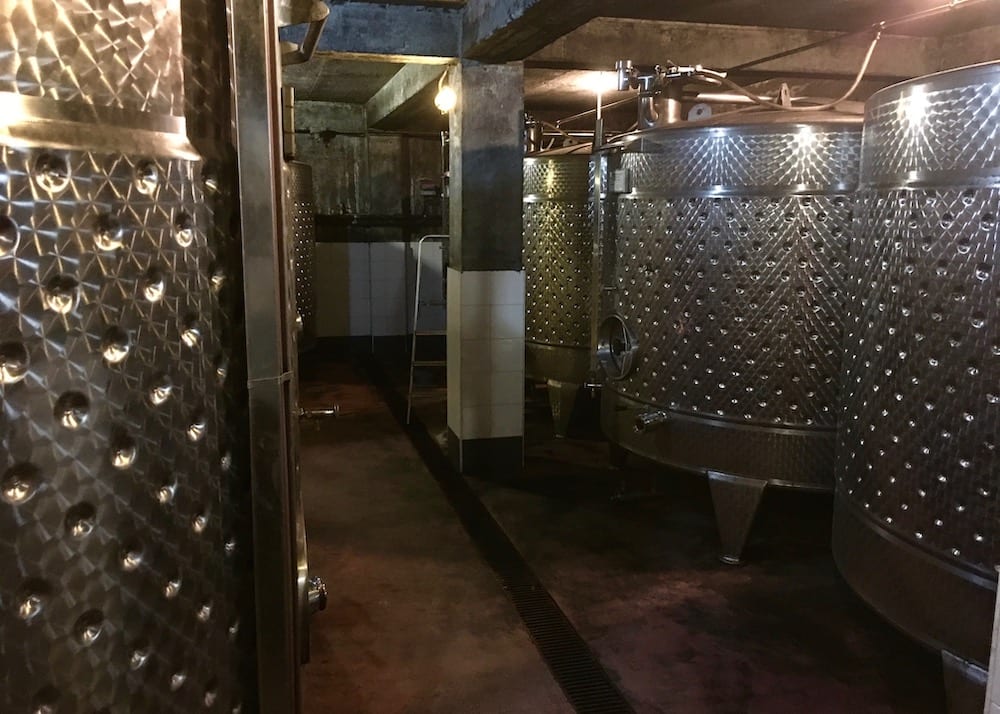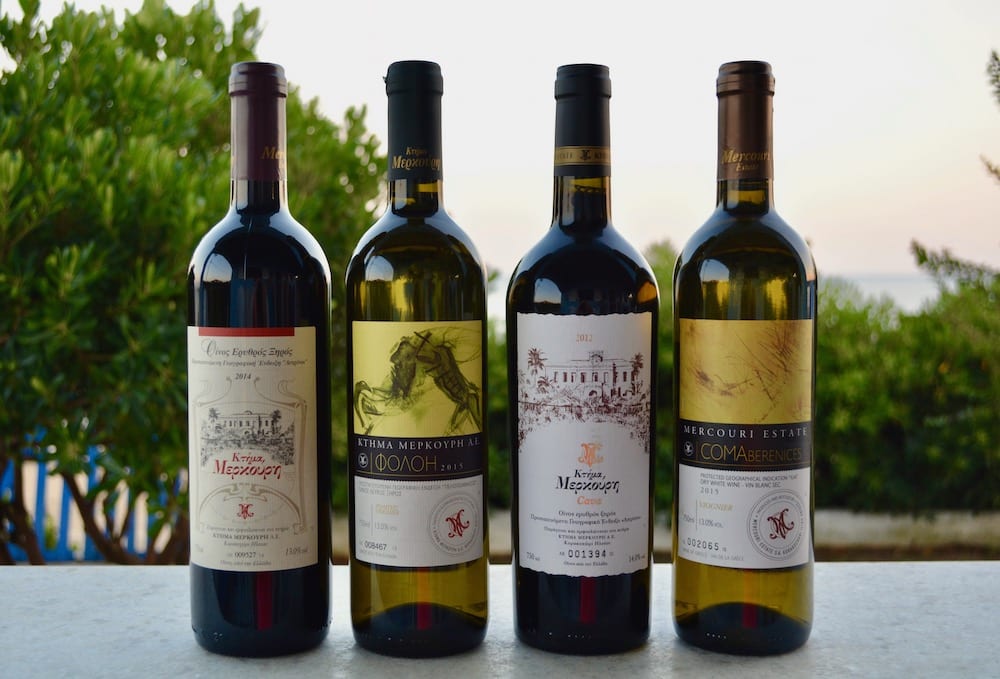Greek Wines – Domaine Mercouri

Beyond its pleasant aromas and soothing qualities, a glass of wine holds a special power, the ability to convey a specific place and time, most commonly referred to as terroir, the combination of climate, weather, and soil that give a wine its specific characteristics. It is this terroir that the hundred and fifty year old winery, Domaine Mercouri, has captured as the premier producer of geographically protected Letrini wines. Founded in 1864, it is also one of Greece’s oldest wineries, now operated by 4th and 5th generation members of the Mercouri family.
The Winery’s Early Years
The winery’s story begins in the 1800’s. Having left his mountain village as a young man, Theodoros Mercouri spent several years in Italy, working for various wine estates developing a passion for winemaking and Italian grape varietals. Later moving to Egypt, he prospered in the cotton trade and established a family but longed to return to Greece and pursue his love of winemaking in his homeland. To that end, he began searching for a suitable site for his vineyard and fell in love with a 40 acres property on the Ichthis peninsula along the western coast of the Peloponnese, near the port of Katakolo and a short drive from Ancient Olympia.


Overlooking the Ionian sea, the Ichthis Peninsula is an eden of Greek living with sun-kissed summer days and cool Mediterranean nights. Surrounded by plush oleander gardens and tall palm trees, the family built a large Italian inspired villa in 1864, which still stands today, guarded by the ground’s peacock.



Initially producing Corinthian raisins, Theodoros imported cuttings of Refosco from Friuli, Italy, in 1870. Over time, the grape adapted to its new home, leading to its reclassification as the “Refosco Mercouri” clone. Delicious aromas of sour cherry, vanilla, and smooth tannins aside, what is particularly captivating about this grape is that Mercouri still produces wine from two acres of original self-rooted vines. Following the phylloxera epidemic in the late 19th century, one can appreciate the rarity of such a find, especially on the European continent where the phylloxera insect was particularly devastating.
The Winery’s Modernization
In 1930, Leonidas Mercouri, Theodoros’ son, built a new production facility, considered top of the line for its time, with underground cellars able to hold approximately 300 tons of wine.


The facility remained in operation until the 1960s when the economic pressures of a struggling Greek economy led the family to sell their annual grape yield to other winemakers, temporarily abandoning wine production. In 1985, however, Leonidas’ grandchildren and 4th generation Mercouri, Vassilis and Christos Kanellakopoulos set out to revive the winery, modernizing the operation while expanding production to include additional Greek and international grape varietals.


The Wines
Today, Domaine Mercouri works with more than 15 grape varietals, producing 13 labels. The winery is in constant evolution, experimenting with new blends and winemaking techniques. They are among a handful of Greek wineries growing Viognier, a noble grape from France’s Northern Rhône region, and continue to receive accolades for their red and white wines, in particular their Domaine Mercouri red, a Refosco/Mavrodaphne blend, and Kallisto white, an Assyrtiko/Robola blend.

A striking characteristic of Domaine Mercouri is its harmonious balance between past and future. In contrast to the sleek contemporary feel of many of Greece’s new wineries, to step into Mercouri’s tasting room is to step back to a bygone era. Relics from the winery and the region’s story adorn the walls. Surrounded by an antique grape crusher and olive press, one can taste and sample the latest vintages while listening to Mercouri’s 5th generation describe their vision for the winery with enthusiasm.
Just minutes from the busy port of Katakolo, Domaine Mercouri is a tranquil respite from the hustle and bustle of summer travel. Sitting with friends, sipping wine, surrounded by blooming oleanders and views of the Ionian sea, one can truly appreciate the beauty of the western Peloponnese. A beauty that generations of Mercouri have worked to convey through their carefully crafted wines.
